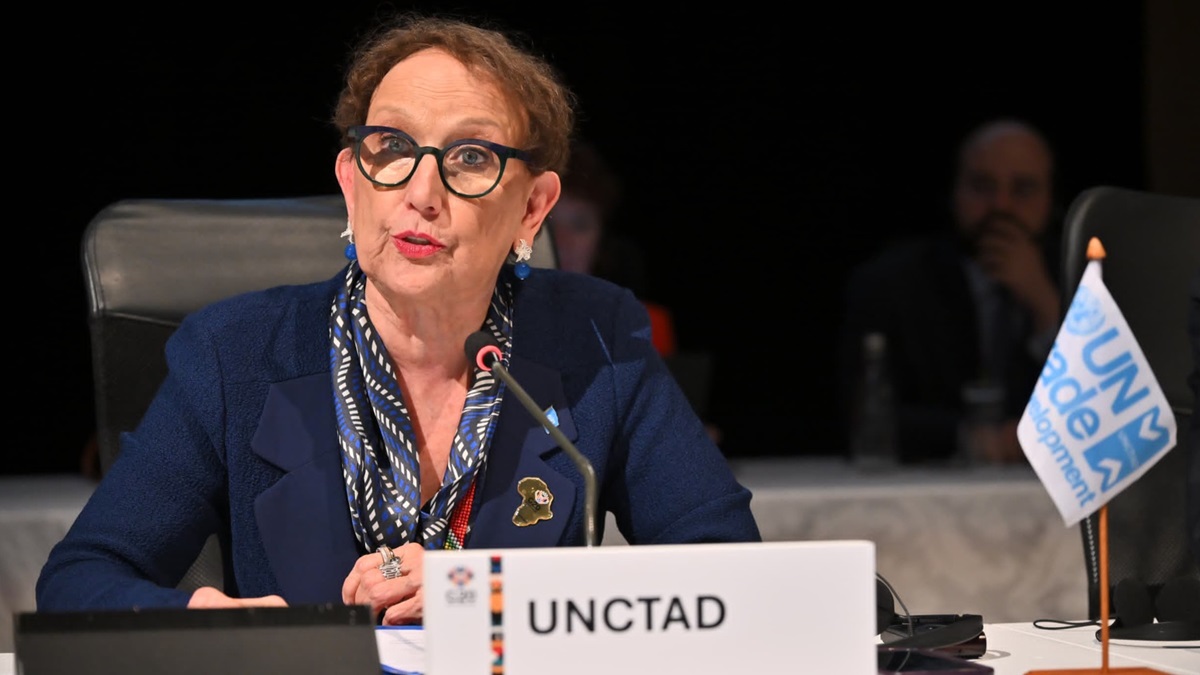The UN Trade and Development chief calls for collaborative action from the Group of 20 to safeguard global growth and shared prosperity.
© UNCTAD Photo | UN Trade and Development Secretary-General Rebeca Grynspan addresses the G20 Finance Ministers and Central Bank Governors Meeting held on 26 and 27 February in Cape Town, South Africa.
G20 economic cooperation is more vital than ever in a world of low growth, soaring debt, high uncertainty, weak trade and low trust.
Comprising the world’s major economies, the G20 represents 85% of world GDP, 75% of international trade and two thirds of the global population.
“The greatest risk to growth is our failure to imagine a common future,” UN Trade and Development (UNCTAD) Secretary-General Rebeca Grynspan tells G20 finance ministers and central bank governors meeting in Cape Town, South Africa on 26 and 27 February.
Atop their meeting agenda is the 4th International Conference on Financing for Development that the United Nations will convene in July 2025.
Making financing and development mutually reinforcing
At best, financing and development can benefit each other, creating a virtuous cycle that builds productive capacity, creates jobs and spurs growth.
But this cycle is currently broken amid global economic uncertainties, Ms Grynspan warns in her remarks.
According to UN Trade and Development analysis, global foreign direct investment posted a fall of 8% in 2024, while investments in sectors crucial to sustainable development dipped by 11%.
Reforming global financial systems
In a renewed push for international financial architecture reforms, Secretary-General Grynspan calls for supporting multilateral development banks to multiply current lending, crowding in private investment and giving them access to special drawing rights (SDRs). These rights are an international reserve asset created by the International Monetary Fund (IMF) to strengthen countries' liquidity.
This will entail a structural and multilateral solution to debt restructuring, meanwhile placing the role of the IMF and SDRs at the centre of the global financial safety net.
Equally important is to reform the G20 common framework on debt restructuring and relief, allowing middle-income countries to provide debt standstills and ensure private sector participation.
“Our international financial architecture needs to adapt to raising challenges. But in doing so we must avoid fragmentation, embrace renovation and infuse a sense of urgency of action,” Ms Grynspan says.
Shoring up sustainable finance
Turning to sustainable finance – where investment decisions incorporate environmental, social and governance considerations – Ms Grynspan calls for updating international investment agreements to help countries mobilize their policy tools for climate action.
The UN Trade and Development chief also reiterates the need to tackle greenwashing, where misleading sustainability claims are increasingly affecting investor demand and hampering inflows into the sustainable fund market.
“The question now isn’t whether we can afford sustainable investment, but whether we can afford its absence,” Ms Grynspan concludes.

